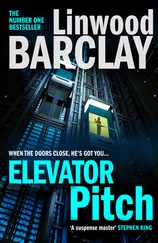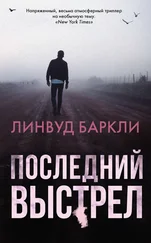Glover shot her a look that seemed to confirm her assessment. “I feel like he doesn’t trust me, or respect me. It’s like he’s watching me half the time.”
Arla gave him a sympathetic look. “It’s not like you’ve got anything to hide,” she said. “I mean, you’re the mayor’s son.”
Chris Vallins watched as Glover Headley and Arla Silbert walked away. Once they’d turned the corner at the end of the hall, he got out his phone and pulled up the pictures he’d taken when Barbara Matheson visited the Morning Star Café.
Using two fingers, he zoomed in on the photos of the young woman who had joined her. He’d taken a few shots as she was leaving the restaurant.
Without question, this was the woman he had just met.
Hanging out with the mayor’s son.
His preliminary research had determined that while Barbara wrote under the name of Matheson, her legal last name was Silbert.
There was, Vallins believed, more than a passing resemblance between the two. He was willing to lay odds that the woman he had just met was Barbara’s daughter.
Vallins shook his head with no small measure of admiration. You had to hand it to Barbara, he thought. She’d installed a mole in City Hall. A mole who was cozying up to the mayor’s son.
The only thing to do now was figure out what to do about it.
Tell the mayor? Or warn Barbara that she was pushing her luck?
Vallins had to admit, he was warming to her.
But for now, telling the boss was the way he was going to play it.
Bucky heard a knock at his second-floor hotel room door.
“Hello?” he said.
“Housekeeping?” a woman called out.
“Look at the sign!” he shouted. He’d left the Do Not Disturb card hanging off the door handle since checking in days earlier.
“I know, but—”
Bucky got up from the bed where he had spread out everything he needed, went to the door, and opened it a foot. Any further, and someone would be able to see what he had spread out all over the bedspread. A woman was standing in the hallway with a large cart stocked with sheets and cleaning supplies and tiny bottles of soap and shampoo.
“I haven’t serviced your room since you got here,” the woman said. “Are you sure you don’t need—”
“I don’t need anything,” Bucky said.
“Fresh sheets?”
“No.”
She held up a tiny bottle of shampoo. “This?”
“I’m good. The room is fine. I don’t need a thing.”
Bucky started to worry when the maid eyed him suspiciously. Maybe she thought he had a dead body in there. Or that he’d kidnapped a girl or something. Or was on some kind of porn-watching binge. He needed to give her a story.
“I’ve got the flu,” he said, and placed a palm over his stomach. “I come to New York to see my girlfriend and soon as I get here I come down with something. Musta caught it on the plane. Right after I check in I start throwing up and then I got the runs.” Then he made a waving motion in front of his nose, clearing the air.
“Oh my,” the maid said, taking a step back from the door.
“I’m taking it easy till it blows over,” he said.
“What about food? I don’t see any tray from room service outside your door.”
“Been too sick to eat,” Bucky said. “Maybe tomorrow.”
“Okay, okay, you get better,” the woman said, pushing her cart on to the next room.
Bucky closed the door and sighed with relief. He wouldn’t have wanted to be asked to explain the items strewn across the bed and desk. Certainly not the empty pizza boxes, which would have put a lie to the story he’d just told. But especially not the various containers of chemicals. The wires. The timers. The two open laptops. The two burner phones and other electronic devices.
The gun.
Bucky had driven all the way across the country to New York. It wasn’t like he could get on a plane with all this stuff, especially the silencer-equipped Glock 17.
He’d brought everything up to the room in two trips, which wasn’t all that difficult given that he had booked himself into a two-story motor court. No high-rise hotel for him. Wouldn’t want to be trekking up all those flights of stairs these days. Once he had everything in the room, he set it all up the way he liked. It was here that he’d put the finishing touches to the bomb he’d left in the Prius. It was here that he was preparing two more. And it was from the laptops he did any necessary research, and watched reports about what he’d accomplished.
Bucky was going to have another talk with Mr. Clement tomorrow. He had some ideas about what to do next, maybe up their game, but he wanted to clear them with the boss. It was a conversation they would have in person. Mr. Clement didn’t like communicating through landlines or cell phones. The old man avoided texting. He didn’t like when things were written down. The guy wouldn’t even take an Uber. Only cabs he could pay for in cash. So they’d set up meetings at the zoo, or on the street, or in the hotel men’s room.
They’d have another meeting there in the morning. He’d just have to be careful not to be seen by Mrs. Clement. She’d spotted him, Mr. Clement said. She was getting a little suspicious.
Bucky didn’t like that. He knew Mr. Clement kept her in the dark about the worst of his activities. But women often had ways of figuring things out. They were sneaky. They couldn’t be trusted.
Bucky wondered what Mrs. Clement would do if she knew the things her husband had set in motion.
Maybe nothing.
Maybe something.
Anyway, he couldn’t worry about that now. He had work to do.
Jerry Bourque and Lois Delgado had already put in a twelve-hour day and were both starting to get a bit punchy. Delgado had phoned her mother-in-law to babysit, again, because her husband had pulled a late shift at the firehouse. She’d talked to him a couple of times, the two of them wondering what the night might bring in a city without elevators.
On Delgado’s computer screen was the picture Jerry had emailed to himself from Otto Petrenko’s coworker’s phone. It showed, in the distance, Otto talking to the tall man leaning up against the dark sedan.
Delgado had placed on the same screen, off to the side, a photo of Eugene Clement. She and Bourque did not necessarily have a reason to believe it was Clement who’d come to see Otto at his place of work, but it was a starting point.
“I just don’t know,” said Bourque, who had wheeled his office chair around to the other side so he could sit shoulder to shoulder with his partner and stare at the screen. “It could be him, but then again, it could be just about anybody.”
“Clement and this guy are about six feet, but so are half the men in the world, so that’s no help. And they both have gray hair. But...”
“What do you see?”
“I’m just looking at our mystery man’s hair. It seems... off.”
Bourque leaned in closer. “Off, as in...?”
“Kilter. It doesn’t look natural. I think it’s a rug.”
Bourque nodded. “Maybe. So... it’s part of a disguise? He doesn’t want people to recognize him?”
“Or he’s just vain,” Delgado said. “Let’s go back to the tag.” She zoomed in on the back of the sedan. That part of the car was in shadow, and the color of the license plate was difficult to determine. Plus, it was nearly 50 percent obscured by the used Mustang, in the foreground of the picture, that the elevator technician had been thinking about buying. Immediately to the right of the plate was a scratch in the paint where the bumper had been dented.
All they could make out were the last two numbers of the plate: 13. Even those numbers were somewhat blurry. The plate could be a New York State one. Below the numbers were what appeared to be the letters TATE. Most New York plates had the words “Empire State” across the bottom. But then again, most New Jersey plates said “Garden State” in the same place. And Connecticut plates featured the words “Constitution State” along the bottom edge. Rhode Island had “Ocean State.”
Читать дальше
Конец ознакомительного отрывка
Купить книгу
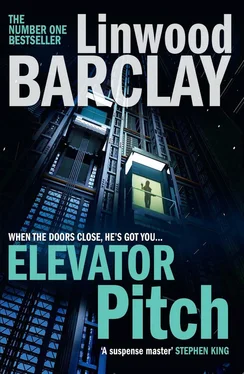

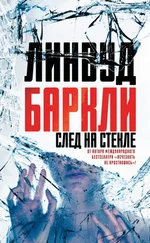
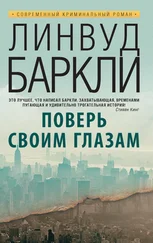
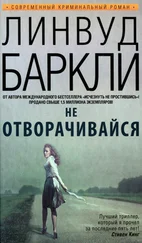
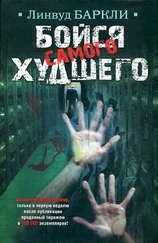
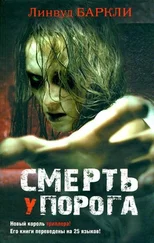
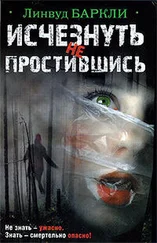
![Линвуд Баркли - Последний выстрел [litres]](/books/412435/linvud-barkli-poslednij-vystrel-litres-thumb.webp)


